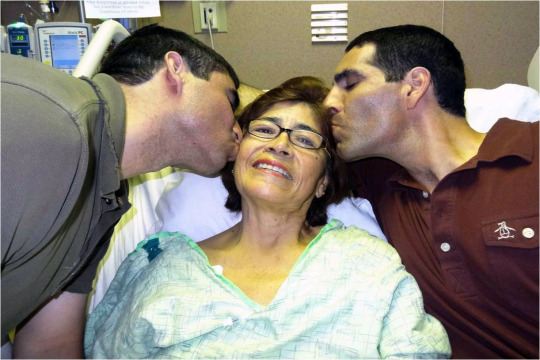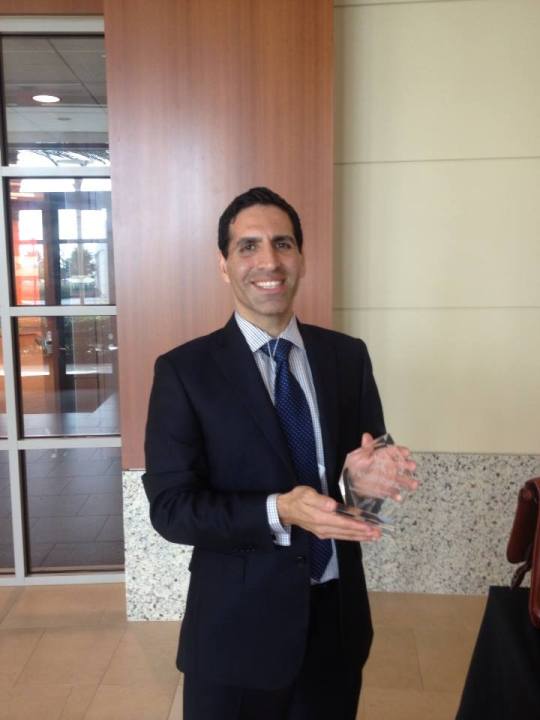
The TV cameras
weren’t rolling.
And the waters weren’t swirling with
blood.
But the seven competitors in “The
Dolphin Tank” each hoped to survive in the cutthroat world of new business
startups. The difference was the setting.
The popular reality TV show, ABC’s
“The Shark Tank,” offers entrepreneurs a chance to pitch their product ideas to
venture capitalists, investors known as “sharks” willing to back the ideas with
their own money.
“The Dolphin Tank” was a friendlier
setting in which four judges—a venture capitalist, academic, small business
incubator organization and gerontologist—-heard three-minute “pitches” from
entrepreneurs marketing their healthcare-related products or services to the
fast-growing seniors population. In addition to questions, advice and
suggestions from judges, audience members at the recent annual meeting of the
Gerontological Society of America (GSA) in Orlando watched the presentations
and questioned presenters.
Meeting the needs of a growing senior population
The small businesses offered a primer
on how to deliver products or services to meet the growing needs of seniors.
Ten thousand Americans turn 65 every day. If it were a country, the U.S.
seniors market would comprise the world’s eighth largest economy, said “Dolphin
Tank” Judge David Lindeman, director of the Center for Technology and Aging at
the University of California Berkeley.
Besides Lindeman, judges included
Kirstie Chadwick, the president and CEO of The National Business Incubation
Association; Charlene Quinn, associate professor of Gerontology at the
University of Maryland, and Alex Guastella, managing partner of Wet Paint
Ventures. The Dolphin Tank is a program of Springboard Enterprises, a network
of innovators and investors building high-growth technology-oriented companies,
with special focus on women-owned businesses.
Contestants included Carrie Nieman,
M.D., an ear, nose and throat resident and a co-founder of Access HEARS of
Baltimore; Darren Wendroff, founder of CareSpotter in Orlando; Joseph Hamilla,
CEO of Home for Life Design of Orlando, which provides home accessibility
and technology solutions to seniors living at home; Linda Royer, president and
founder of LivingSmart, also in Orlando, a website-based wellness management
firm; Alexander Bartkow of Project Carbon in Boston; Rebecca Koszalinski,
co-founder of Speak for Myself, a Boca Raton, Fla., firm that provides computer
applications to allow hospital patients unable to speak for themselves to
communicate with health providers, and Gerontologist Janet Caldwell Cover,
founder of Hartford, Conn.-based TreasureVox, which allows older adults with
dementia to tell their personal stories.
Rather than a confrontational reality
show format of blood-thirsty competition and artificial drama, the “Dolphin
Tank” judges offered sage advice and probed contestants about important aspects
of their businesses’ financing, operations and marketing. Audience members, who
know the seniors market well, suggested ideas, business opportunities and
marketing options that the entrepreneurs genuinely seemed to appreciate.

Baby Boomers to boost market
Dr. Nieman, a post-doctoral fellow at
the Center on Aging and Health at Johns Hopkins University in Baltimore, said
two-thirds of the nation’s 26 million older adults experiencing hearing
loss will do nothing about it. Neiman said most can’t afford to spend the
$3,000 to $8,000 for a hearing aid and the audiologist visits required.
“That’s around 23 million American
seniors with untreated hearing loss,” she said.
She noted that the huge potential
market will grow with the aging of Baby Boomers.
But that’s not what has driven her
and Access HEAR’s team.
“That money is all out of pocket,
because Medicare doesn’t pay for hearing aids. So most seniors don’t buy them.
I’ve seen the pain and isolation that this causes and it’s unnecessary,” she
explained.
The startup offers low-tech personal
sound amplifiers for around $200 that work nearly as well as the higher cost
hearing aids. Trained community health workers, operating under the guidance of
audiologists and ear, nose and throat specialists, identify patients and
counsel them about hearing loss.
“These are low-cost, over the counter
devices that blur the line between hearing aids and sound amplifiers that offer
amplification and clarity similar to hearing aids. After serving and studying
30 older adults in a Baltimore senior housing project who went through our
program, they reported improved quality of life, reduced hearing loss and improvements
in hearing acuity,” she said.
Lindeman told Nieman that the Access
HEAR “could be a game-changer in rural areas.”
Wendroff likened CareSpotter, to “an
e harmony for caregivers,” which allows families seeking professional
caregivers to log onto its website and employ key compatibility factors like
language, ethnicity, geographic location and experience to find the best person
for the job. Wendroff launched his firm when his family was seeking a caregiver
for his dying mother.
CareSpotter matches families
needing caregiving services to trained certified nurse assistants (CNAs),
licensed practical nurses (LPNs), registered nurses (RNs), home care
aides (HCAs) and nurse assistants (NAs) seeking work. Using a proprietary
algorithm, families search through caregivers who have been screened and have
posted their profiles on its website to find the best possible match.
“When mom was discharged from the
hospital, we were given a list of caregiving agencies, but no recommendations
or listing of the caregiver skills,” he remembered. “It was very frustrating.”
So he left his Virginia accounting
firm to care for his mother in Florida.
“I was the caregiver and didn’t know
anything about it,” he said.
Start up events
After launching CareSpotter, he entered
a Google startup weekend event and was the top vote getter. He applied to
Health Box, a national healthcare startup incubator. He said
the accelerator helped him understand his potential customers and find the
right business model. CareSpotter has helped more than 650 families to find
caregivers since 2014. The company also added a payroll service to
aid families in paying their caregivers.
Contestant Bartkow’s Project Carbon, which
develops games for virtual reality platforms, learned about Alzheimer’s while
recovering from neurosurgery after injuries received while serving in the U.S.
military.
“I wanted to keep brain active, so I
signed up for class at MIT and learned that strategy games have the ability to
develop the brain,” Bartkow said. “Our idea got picked up by an incubator. I
saw a presentation by an Alzheimer’s researcher and it inspired me to dig
deeper.”
Bartkow said his company has
developed its own hybrid hardware.
“We’re just designing games that are
fun to play that improve the environs for patients and their families,” he
said.
Lindeman said the judges were looking
for great business models and products with an understanding of their markets.
After owners made their pitches,
judges peppered them with questions about funding and product development
and encouraged them to refine their business plans.
Audience members—-comprised of gerontologists, healthcare providers,
social services professionals and others knowledgeable about the seniors
market—also participated.
“There’s a big knowledge gap for
healthcare startup owners serving the aging market,” Lindeman said. “Where
do you turn for expertise?”
Lindeman advised startups mining
the seniors market to seek advice from organizations like AARP, GSA and
Aging 2.0.
“Often the key for technology
startups in particular is getting connected while still in the formative
stages,” he said. “There are more resources in metro areas. Those in
smaller towns can always approach gerontologists at their local community colleges.”
He said the “Dolphin Tank” is
intended to be useful to the participating companies.
“This market is growing so fast that
now we’re starting to see venture capital funds focusing on aging. We want to
offer input from experts to help these companies grow.”
This story was
produced with support from the Journalists in Aging Fellowships, a program of
New America Media and the Gerontological Society of America, sponsored by the
Silver Century Foundation.





